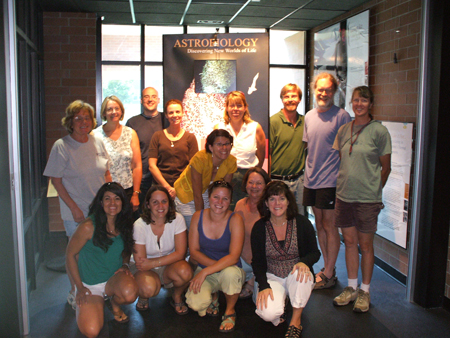Outreach Highlights
Astrobiology Teacher Professional Development, July 2008
The TBI Outreach team put together a new Master’s in Science of Science Education class for Summer 2008,Examining Life in Extreme Environments: Insights into Early Earth and Beyond. This 2-credit course was designed for teachers participating in the Master’s of Science in Science Education (MSSE program) at Montana State University. This course, sponsored by the NASA Astrobiology Biogeocatalysis Research Center at MSU, investigated how studying the extremes of life will aid in a better understanding of early earth conditions and how scientists use this information to look for signs of life on other planets. The course began with a survey of astrobiology and then concentrated on four extreme environments with content lectures and hands-on activities. Environments include extremely high and low temperature environments as well as shallow marine high salt and high pressure deep sea environments. The class included a one day field trip to Yellowstone National Park, and discussions and activities focused on linking the properties of mineral and chemical gradients to prebiotic chemistry on early earth. Special guest scientists joined the class throughout the week including Dr. Brad Bebout from NASA Ames, Dr. Cristina Takas-Vesbach from the University of New Mexico, and Outreach Lead Michele Bahr from Marine Biological Laboratories at Woods Hole. Drs. John Peters, Mark Young and Dr. Robert Szilagyi from MSU also participated.
Fourteen teachers participated in the inaugural class—both faculty and staff are looking forward to next year. We gratefully acknowledge funding from the NASA Astrobiology Institute which made this collaborative effort possible.

Participants in the ABRC sponsored MSSE class Examining Life in Extreme Environments, July 2008.
